YOUR COMPLETE GUIDE TO PLANNING A FRENCH CYCLING HOLIDAY
In this article, we have listed some of the things you will want to know in order to help you plan your next French cycling holiday. Included you will find the type of cycling available, where the major cycling destinations are, when the best time to go is, getting to France, traveling within France, accommodation options, and more. We have learned a lot on our trips to France and we share that with you here.
France is the second most popular cycling holiday destination in the world behind Germany and with good reason. Since 1903 the annual Tour de France cycling race has showcased the beauty of the French countryside and mountains to people globally. Cycling in France is a popular sport, a method of commuting, and a popular leisure activity. Cycling infrastructure in France is well developed in towns and cities where bikes are treated as equals on the road making it the perfect choice for your next cycling holiday.
Our entire website is devoted to planning a French cycling holiday and there is a lot to go through. This guide is designed to give you a high-level overview so you start thinking about more detailed planning of your French cycling holiday. We have provided links to other parts of our website throughout the article which will provide you with more detailed information on the topic.
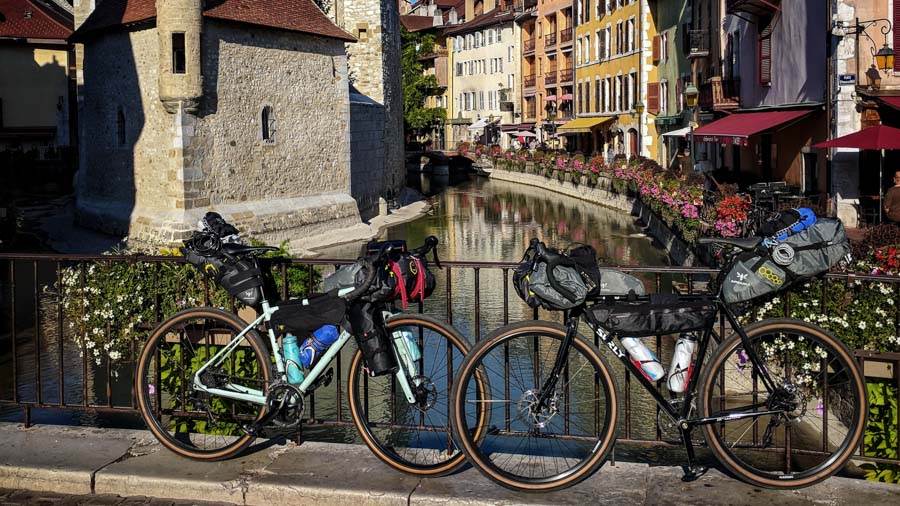
What type of cycling can i do in France?
In summary – there is an option for every type of bike and bike rider in France. You won’t be disappointed.
The type of bike you ride doesn’t matter if you are considering a French cycling holiday as you will find something to suit every style of riding.
Road cycling – France is a perfect destination for road cyclists and there are great cycling options right across the country. Most road cyclists come to France to ride the climbs made famous by the Tour de France but there are plenty of flatter options as well.
Mountain biking – many of the ski resorts have a network of mountain bike trails for the summer months catering to both downhill and cross country riders.
Cycle touring – touring on a bike in France is the perfect way to see the country and there are many routes for you to choose from.
Leisure cycling – whether you want to cruise the vineyards in Bordeaux or ride along the coastline there are plenty of places to enjoy a bike ride in France for the more casual rider.
Family cycling – France has invested significantly in cycling infrastructure meaning there are numerous bike trails and paths separate from roads making it perfect for the whole family.
City cycling – most large cities have self-hire bike stations positioned around the city making it the perfect way to explore. Cycling is popular with locals and visitors alike.
Where are the major cycling destinations in France?
In summary – France can offer mountains, coasts, rivers, canals, inland, and urban destinations for you to ride your bike in.
You can literally ride a bike anywhere in France but there are areas that really stand out and are popular with cyclists. Where you choose to ride really depends on the type of riding you want to do on your French cycling holiday and what else you might want to see as well. Here we list some of the more popular cycling destinations based on the type of riding you are interested in.
Head to our Destinations section for our detailed guides on The Pyrenees, French Alps, Alps Maritimes, The Jura, Provence, and Luberon. Lots of information about where to stay, getting there and riding there.
The French Mountains
There are two major mountain regions in France, the Pyrenees, and the Alps.
The Pyrenees are located in the far southwest of the country bordering Spain, while the alps are in the east of the country and border Switzerland and Italy. There are three smaller regions, the Alpes Maritimes, Jura, and Vosges that could also be considered. The Alpes Maritimes runs north from Nice in the southeast of the country, the Jura sits west of the French Alps running into Switzerland and the Vosges sits near the German border in the east of the country.
These areas are home to the challenging mountain passes made famous in the Tour de France as well as plenty of others you will have never heard of. For mountain bikers, there are mountain bike parks and cross-country trails to choose from. Given the challenging terrain, you will encounter these trails that are best suited to people who would consider themselves regular riders. There are beginner and family options in all the mountain regions so do not be put off if you have a mix of riding abilities in your group.
For those that enjoy cycle touring there are some challenging routes across both the Pyrenees and Alps. The raid Pyrenees traverses the length of the mountain range between the Atlantic Ocean and the Mediterranean Sea. The route can be ridden in either direction. There is a similar ride in the French Alps known as the Raid Alpine. It runs along the French Alps from Geneva in Switzerland to Nice.
Côte d’Azur and Atlantic Coast
The coastal areas in France offer plenty of opportunities for road bikes, leisure cyclists, touring cyclists, and families if you want to combine the beach with some riding. There are two coastlines in France, the Atlantic Ocean in the west of the country and the Côte d’Azur on the Mediterranean Sea in the far south of the country.
The Atlantic coastline stretches from the Belgian border in the north to the Spanish border in the south. There are numerous cycling options wherever you choose to base yourself and you will find plenty of cycling paths and trails making it safe for the whole family. The terrain is flat along the coastline and big climbs are few and far between.
The Mediterranean coastline runs from the Spanish border in the west to the Italian border in the east. There are plenty of places to ride bikes along the coast and you will find lots of variety to keep everyone happy. As you move towards the Italian border the terrain behind the coast gets much hillier and gives you the option of riding some challenging mountains as well as the flatter coastal areas.
Rivers and canals
Many of the paths along rivers and canals once used for transporting barges have now been turned into cycling paths running for hundreds of kilometers. These paths are generally very flat and provide a great way to explore an area.
Les Canal des 2 Mers is a cycle path that runs from Royan on the Atlantic Ocean to Montpellier on the Mediterranean Sea and is nearly 800km in length. The route follows the Canal de Garonne and Canal du Midi and passes through numerous beautiful towns and villages along the way.
In the southwest of France, the valleys of the Lott and Dordogne Rivers are great destinations for a cycling holiday. There is a mix of cycle paths and quiet country roads to choose from as well as many stunning villages and towns to stay in.
In the east of the country, the Rhone River route runs from Switzerland into France and all the way down to the Mediterranean. The entire route is 1,250km in length and offers many amazing sites along the way.
The Loire Valley in the central west of the country is another popular cycling destination with plenty to see and do along the way. The cycle route here forms part of a larger route that runs 4,450km From France to Bulgaria.
The Rhine River in the northeast of France is another cycling option. This route also forms part of a larger path traversing the length of the Rhine River. It starts in Switzerland and ends in Holland some 1,500km later.
Inland
Rivers and canals aside, there are other areas inland to consider for a cycling holiday to France.
Provence in the southeast of the country is quintessentially French and offers many great riding options. There are plenty of quiet country roads to explore where you can visit the lavender fields and perched villages the area is famous for. You can explore the Gorges du Verdon and the Gorges de la Nesque and ride their stunning balcony roads. If you are looking for a challenging ride Mont Ventoux, known as the giant of Provence, awaits.
A little further north and to the west sits the Vercors National Park. This region is known for the stunning cliffside roads which wind their way along the valleys.
The north of the country is home to the fabled cobbled roads made famous by the Paris Roubaix cycling race. This area is known as the Hell of the North and has a long history with cycling in the country.
City
Getting around French cities by bike is a great alternative to public transport or driving. Most of France’s larger cities have self-serve bike hire stations dotted around the city where you can grab a bike and ride around for a while.
Cycling infrastructure is well developed and you will find bike paths and bike lanes for you to use. Many French people commute by bike so there are always plenty of bikes around and this is only getting better post the 2020 and 2021 lockdowns.
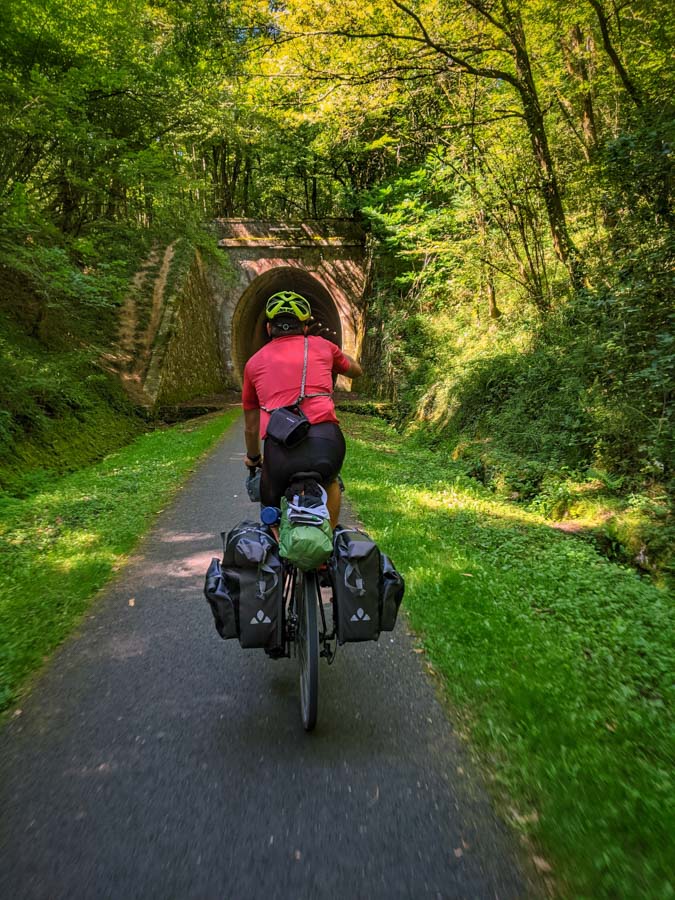
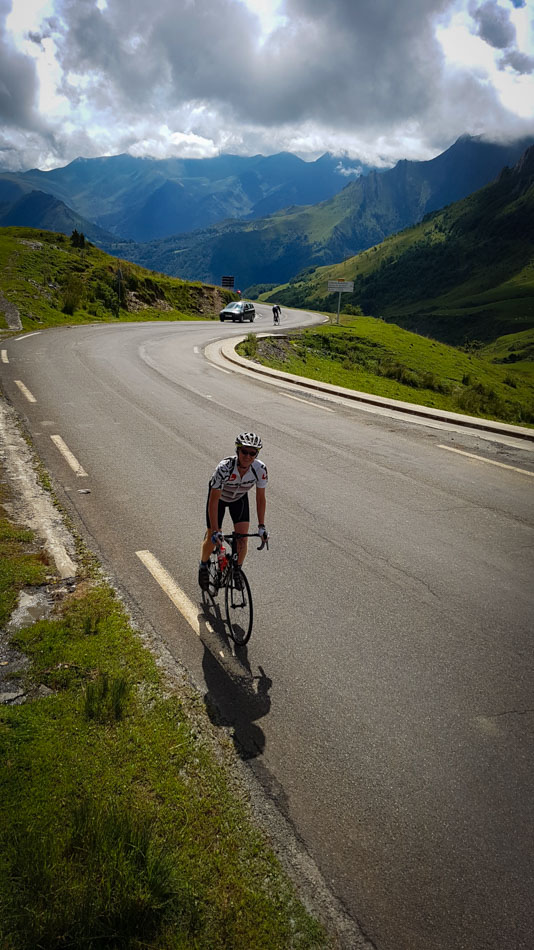

When is the best time for a French cycling holiday?
In summary – Spring and autumn are the best seasons for a French cycling holiday. Destinations are less crowded and the weather is a little cooler.
Spring (May and June) and Autumn/Fall (September and October) are the best times for a French cycling holiday. The weather is a little cooler and it is not as busy as the peak summer months of July and August. This also means that things are a little cheaper when it comes to accommodation and travel. The cycling season runs from May to October in most areas. In the mountains, this can be impacted by snowfalls which keep some of the higher passes closed. The months of July and August are the busiest months and many countries in Europe have their main school holidays within this period.
The time of year you go may also be dictated by what you want to see. For example, if you want to watch the Tour de France or participate in an event you will need to go when they are on. We would recommend going outside the busy months if you can, you will find things slightly cheaper, have a better choice of accommodation and the crowds will be less.
The last few summers have seen heatwaves across France and being able to travel in spring or autumn will allow you to avoid the worst of the summer heat. Even in the mountain areas summer can be quite warm as many of the valleys are at lower altitudes. The mountains can also be subject to violent summer storms which are less active in the cooler months.
For more information, we have a page dedicated to this topic. Here we include information about school holidays and public holiday dates in France.
What is the best way to travel to France?
In summary – There are a range of options to travel to France depending on where you are coming from. Air, road, rail, and sea can all be considered to get to France.
How you get to France for your cycling holiday depends on where you are coming from.
For those outside Europe flying is the only real option. Paris Charles de Gaulle is the major international airport in France and most major airlines have flights here. There are other airports across France, and you may be able to fly directly to one of these as well if you do not necessarily want to go through Paris. Many airlines offer summer services to destinations such as Nice, Marseille, Bordeaux, Lyon, and Toulouse giving you extra options to choose from.
For those already on the European continent driving and trains are other options to consider. There are extensive road networks linking France to other countries and having your own car gives you the flexibility of traveling when and where you want. Traveling to France by train is easy to do from within Europe and there are many services operating between countries, including the Eurostar through the tunnel to Britain.
If you live in Ireland or the UK taking the ferry is another option for you to consider. In Ireland, you can travel to Cherbourg from either Dublin or Rosslare. From the UK the main ferry port to France is Calais in the north of the country, although there are also options to Cherbourg and St Malo which are both further south. The major ferry ports in the UK are Dover, South Hampton, and Plymouth.
What is the best way to travel within France?
In summary – Getting around France is relatively easy. Choose from air, rail, or road depending on your preference.
Once you are in France there are three main transport modes to get you to where you are looking to go being air, rail, and road. There are a range of destinations you can fly to within France depending on where you want to go. In 2020 the French government mandated that short-haul flights be replaced by train services as part of its ongoing commitment to reducing carbon pollution. This means the choice of where you can fly will decrease.
France has an extensive rail network including the high-speed TGV. Travel by train is a popular way to get around France and it is easy to get to destinations across the country. There are 3 types of train services in France, the high-speed TGV, Intercities and Regional. The first two run in between the larger cities in France while the last one runs within various regions getting you to the smaller towns and villages.
The final option to consider is the road. Hiring a car in France is easy to do and all the major car hire companies have outlets nationwide. The Autoroutes are multi-lane toll roads that run across the country and make getting places relatively straightforward. These roads do get very busy in holiday periods and you can expect large lines as you approach the toll gates at busy periods. Tolls can be expensive and are based on the distance you travel on each road.
How much does a French cycling holiday cost?
Working out how much your cycling holiday in France will cost comes down to personal choices and there are lots of variables that will impact the final cost. Putting a value on the cost is too hard to do and as such we do not include that.
To calculate the cost of a trip it is best to set the maximum amount you wish to spend and then work backward as to the cost of the various components.
To give you an idea of the costs of some items in France we have compiled a list of common items you would purchase on a holiday. Prices will vary between city and rural areas and also with seasons, but this will at least give you an indication of costs compared to what you may pay in your own country.
Accommodation
2 nights in a basic hotel €100 – €110
Food and drink
Lunch basic menu €14-€18
Fast-food chain combo meal €10
Pub style dinner for 2 €34 – €43
Restaurant dinner for 2 €48 – €65
500ml domestic beer in pub €5 – €7
Bottle of red wine supermarket €6 – €8
500ml domestic beer supermarket €1.50 – €2.90
Cappuccino €2.30 – €4.50
Coke 2l bottle €2.50
Transport
7 days small car hire €155 – €300
7 days medium car hire €170 – €685
7 days large car hire €250 – €1,084
Cost per liter of unleaded €1.24 (€4.70 per gallon)
Cost per liter of diesel €1.34 (€5.05 per gallon)
Here are some useful tips we have learned along the way about visiting France for a cycling holiday.
1. Make sure you know when airlines offer their best deals. For example, our experience from Australia is that the best fares are usually offered in November and December for the following northern hemisphere summer. Price variances can be significant.
2. Hotels in France offering “demi-pension” or “half board” are of great value as they include dinner, bed, and breakfast. Often you don’t need too much for lunch given the size of the other meals.
3. Travelling outside the peak months of July and September will save you money.
4. Rather than eating in restaurants all the time, consider heading to the local shops and markets to make your own meals.
5. Book as far in advance as possible to get the best prices. Airfares can only be booked about 11 months out and train 3 months in advance, but car hire and accommodation can often be booked at least 12 months prior.
Our suggestion is to start with a budget and then look at (in this order) the cost of:
- getting to France
- accommodation in France
- cost of particular activities
- eating and drinking
- general spending
Are there hotels that cater for cyclists in France?
In summary – While most hotels could be called “bike-friendly” in France, you will find hotels that focus specifically on cycling guests. In these hotels, you will find things like bike storage, bike maintenance, and plenty of local knowledge.
Across France, you will find hotels catering specifically to cyclists which are perfect places to stay on your French cycling holiday. While our experience has been that most hotels are cycle friendly, these places go that extra mile in terms of catering for cyclists. They are typically run by people who love cycling themselves and who will be able to assist you with lots of local information and advice.
Some of the features of this style of accommodation include dedicated bike storage areas, bike maintenance spaces, bike wash facilities, meals catering specifically for cyclists, group rides, and plenty of bike-related help if needed. These places are usually full of other cyclists and are a great place to meet others from around the world and shares stories.
We have compiled a list of cycling hotels to make your selection easier. To date, we have covered the Pyrenees, French Alps, Alpes Maritimes, Jura, Luberon, Bordeaux, and Provence areas. We are adding new areas regularly.
We also have a page about other types of French accommodation on offer which explains the different options for accommodation in France.
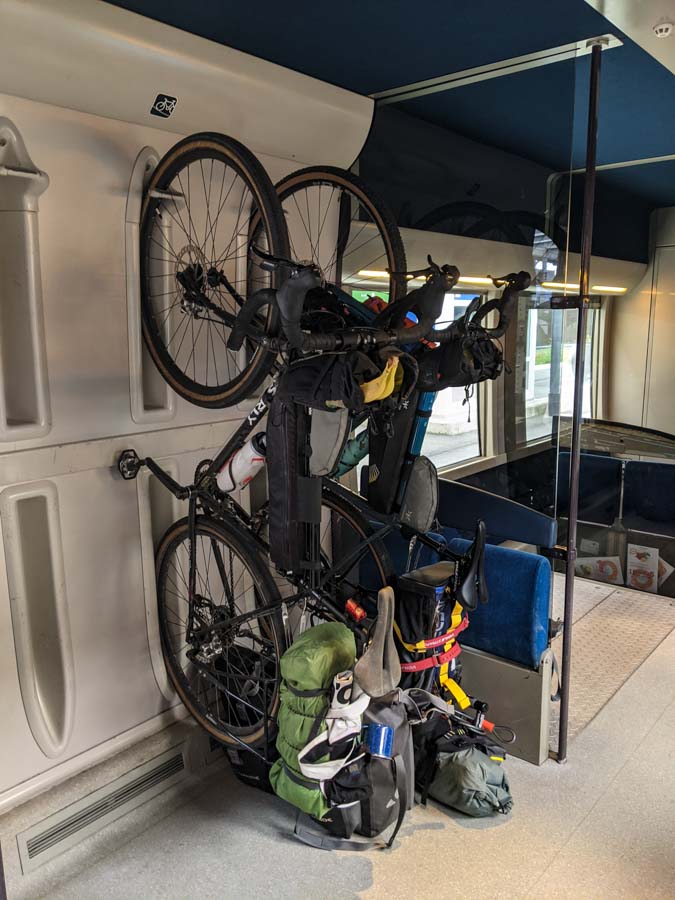
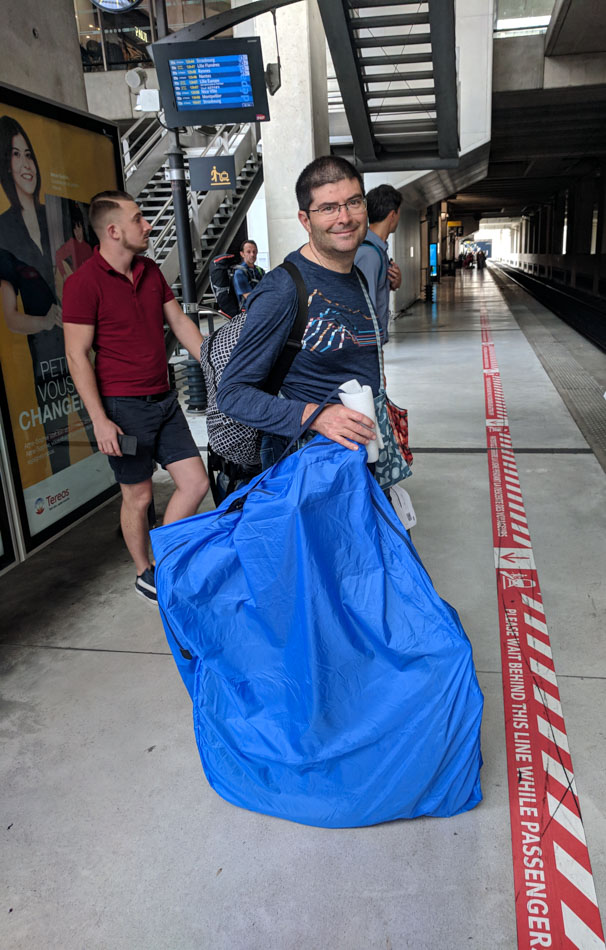
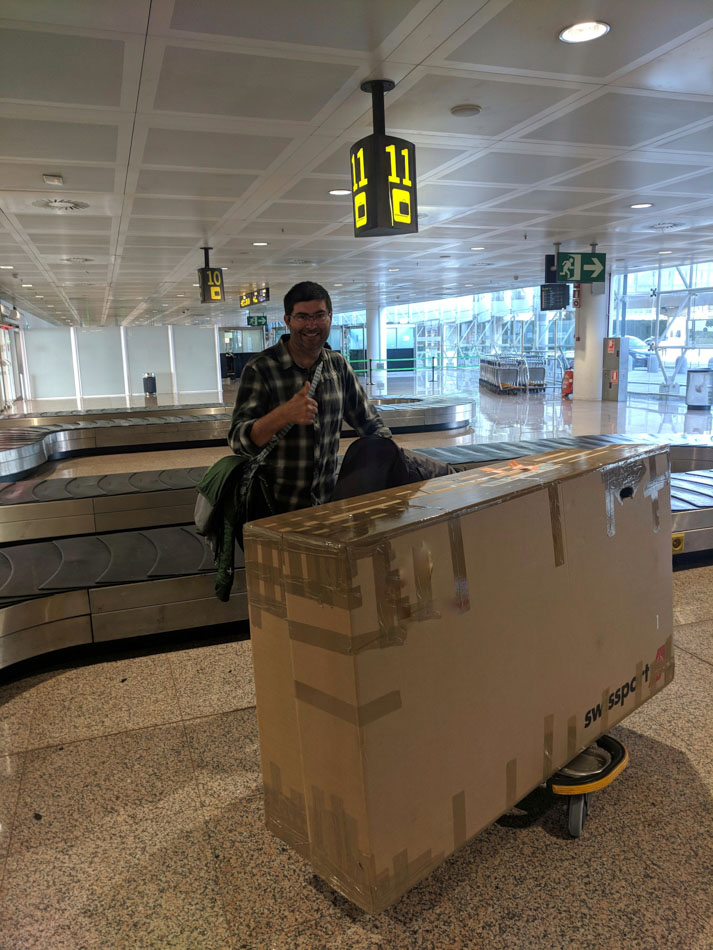
Can I join a cycling tour in France?
In summary – There is a wide range of cycle tours for you to join in France regardless of the type of riding you wish to do. Select from guided or self-guided options.
Those who prefer to join a cycling tour group for their French cycling holiday will be spoilt for choice. There are many benefits of this style of trip, the main one being you simply turn up on day 1 and everything else is taken care of by someone else. There are tours catering for all levels of fitness and types of riding. So, whether you ride regularly and are looking for that next big challenge, or you simply want to try something new on holiday, you will find something to suit.
There are two main styles of bike tours in France. The first are guided tours where you join a group and are accompanied by guides for the duration of the trip. The second are self-guided tours where the planning is done for you, but you do not have a guide accompany you each day. We will explain each in a little more detail below.
As the name suggests guided tours involve a guide who is with you for the duration of the tour. This style of bike tour involves joining a group of people for a set duration and itinerary. Dates for this type of tour are fixed and all arrangements are taken care of once you start the tour.
While much of the organization is taken care of on a self-guided tour, you will not have a guide accompany you on the trip. On this style of bike tour, there is no group to join and you can start whenever suits you. The tour company organizes your accommodation and provides you with route details for your riding which you then undertake yourself. If necessary, the tour company can assist with any problems you encounter along the way.
Cycling races and events in France
In summary – There are a number of cycling races and events for you to watch or participate in. The Tour de France, held in July, is one of the largest annual sporting events in the world.
You may also wish to watch the professionals race or participate in an event yourself on your French cycling holiday. There are plenty of both to choose from with most of them running in the summer months.
Tour de France
The Tour de France bike race is watched by millions around the world and for many, it is where the desire to travel to France and cycle comes from. Watching the stages of the Tour de France by the roadside is something you should consider if you have watched the race on the TV for many years. And yes, you do stand by the side of the road for hours only to watch riders whiz by in minutes but there is much more to it than that.
The race is held in July and usually starts on the first weekend of the month and runs for 3 weeks with the final stage held on a Sunday evening in Paris. The dates have been known to move by a week earlier or later to accommodate other large events such as the football world cup or Olympics. The route is announced at the end of October for the following year so there is plenty of time left to plan your trip.
We have a page dedicated to watching the Tour de France but here are a few key things to be aware of. Firstly, accommodation in the start and finish towns is keenly sought after and books out within days of the route being announced. If you are planning on staying in the same areas, you will need to book in October as soon as the route is announced. Secondly, if you are planning to watch a mountain stage, consider riding to your viewing spot and leaving the car at home or well away. This will make it much easier to getaway at the end of the day, and to navigate the many road closures that are necessary for the event. Thirdly, consider riding one of the mountain stages on the days leading up to the race. There will already be lots of fans in camper vans and tents claiming their spot and it makes for a great atmosphere.
We have lots more information and tips on our dedicated Tour de France pages which you can access here.
Other cycling races
While the Tour de France is the race most people know about there are other world tour races that you could follow as well if a July holiday does not suit your plans.
Paris Nice – held over 8 days in early March and as the name suggests it starts in Paris and ends in Nice.
Paris Roubaix – this infamous race known as the “hell of the north” is raced in early April over the fabled cobbled roads and finishing in the velodrome in Roubaix
Criterium du Dauphine – held over 8 days in the first half of June, this event is a big indicator of rider form for the Tour de France. The race is held in the Rhone-Alps region.
Paris Tours – held over a single day in October the race runs from the outskirts of Paris to the city of Tours.
Cycling events
If you enjoy participating in cycling events there are plenty of options for you to consider in France.
The L’Etape du Tour is one of the largest and most popular events in France each year with entries capped at 10,000 riders. This event is run as part of the Tour de France and it gives riders the opportunity to ride one of the stages of that year’s Tour de France on fully closed roads. It is usually one of the mountain stages. This event sells out quickly and the best opportunity to obtain entry is to do so via one of the many tour companies offering packages to the event.
La Marmot is another popular event that is held annually in the French Alps. It finishes with an ascent of the legendary Alpe d’Huez after taking in several big climbs in the region.
The Haute Route runs multi-day events in the French Alps, the Pyrenees as well as Mont Ventoux each year. The events are designed to give riders a taste of what it is like to be a pro-rider in a professional race.
Can I hire a bike in France?
In summary – Hiring a bike in France is straight forward and you will be able to hire anything from the latest carbon road bike to a city bike. Book well in advance if you are heading to a popular cycling destination.
Hiring a bike in France is easy to do and you will find bike hire shops located across the country. Popular cycling destinations often have multiple bike hire shops available to choose from. Some of these also offer the option to book online meaning you can organize your bike rental before you get there. All types of bikes are available for hire including high-end road bikes, mountain bikes, e-bikes (road and mountain), children’s bikes, and hybrid style bikes.
Many cities in France have bikes for self-hire which you will find near train stations and on streets. This is a great way to get around cities and an alternative to using public transport. You will need to sign up for an account online and provide credit card details before you access them, which is an easy process. Usually, the first 30 minutes of hire is free to encourage people to use them for short trips.
Each of our destination guides includes a list of bike hire shops in that area with links to their website to help you plan your French cycling holiday. We also have a handy guide with more information about hiring a bike in France.
French bike hire tips
- If you are travelling in the peak summer months, organise your bike rental well in advance as demand for bikes is high.
- Bring your own seat to ensure you can ride on a seat you are comfortable on
- Take your own pedals to ensure compatibility for your cycling shoes
Useful French bike hire terms
As many of the bike hire websites are in French, we thought we would provide you with some of the French terms you will come across and their English meaning
- Location – rental
- Location de velos – bike rental
- VTT – mountain bike
- Velo de route – road bike
- CVT – hybrid bike
- Vélos électriques – e-bike
- L’atelier du vélo – bike workshop
- L’atelier reparation – repair workshop
- Livraison du vélo – bike delivery
- Accueil – home (page)
E-bikes
For those who may not ride a bike that often but still want to cycle through French country villages or the wineries of Bordeaux, an e-bike could be your answer. These are readily available from hire shops across the country and will give you that little bit extra help as needed.
Our advice to anyone who does not ride often but may want to spend considerable time on an e-bike is to make sure they do some riding before they leave home. While the bike will help with some of the hard work it can still be uncomfortable for someone not used to sitting on a bike seat for an extended period.
How fit do I need to be for a French cycling holiday?
The level of fitness you require for a French cycling holiday really depends on how much and the type of riding you are planning to do. If you are planning on significant riding including big mountain passes you will need plenty of training before you arrive. If your itinerary is more relaxed and easier riding it is still worth spending time on the bike before you leave so you are used to spending hours on the bike. Your backside will thank you for it when you get there.
Our recommendation is to make sure you are well prepared for whatever you decide to do. Your holiday will be much more enjoyable if you have spent some time preparing before you leave home.
